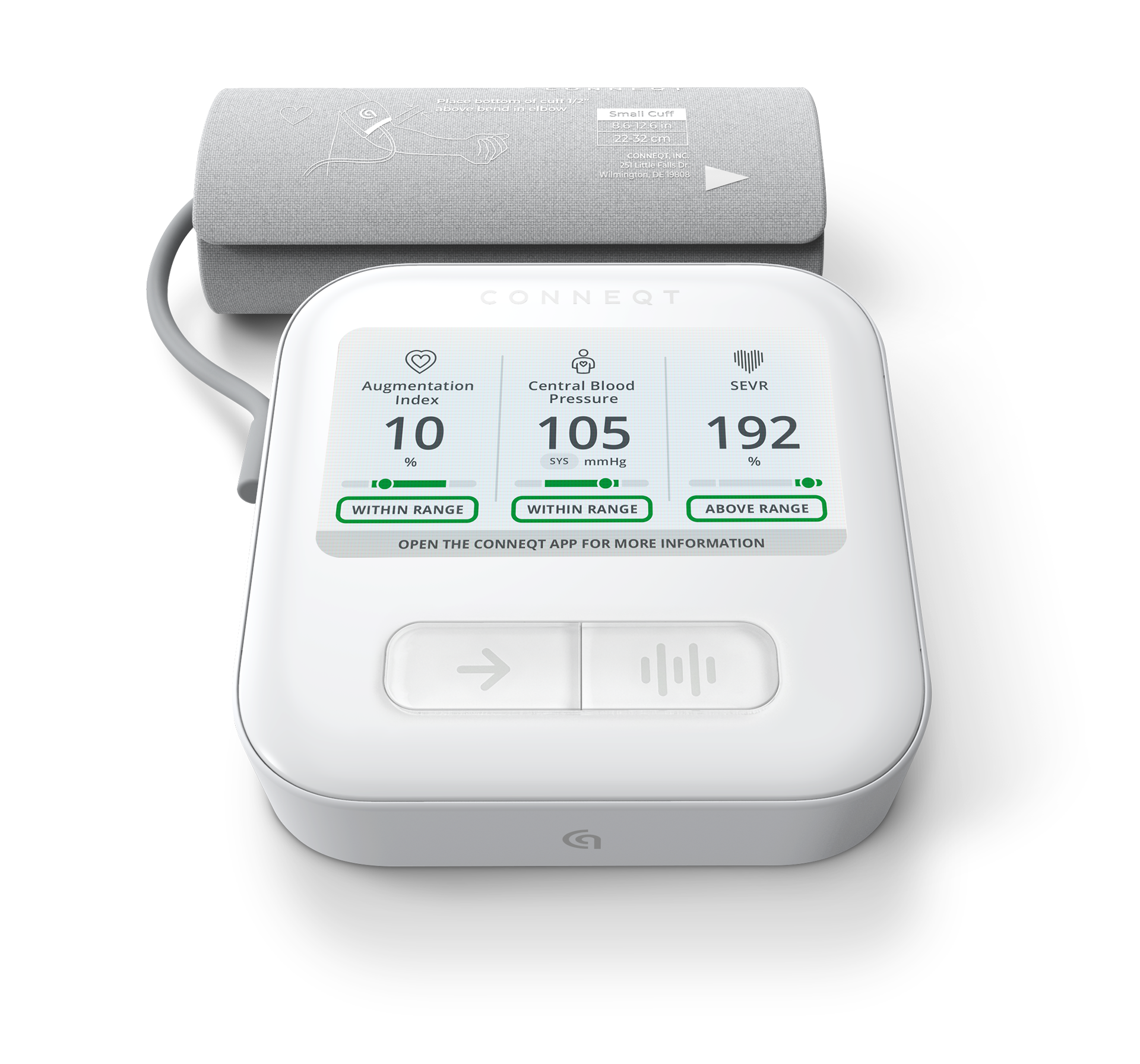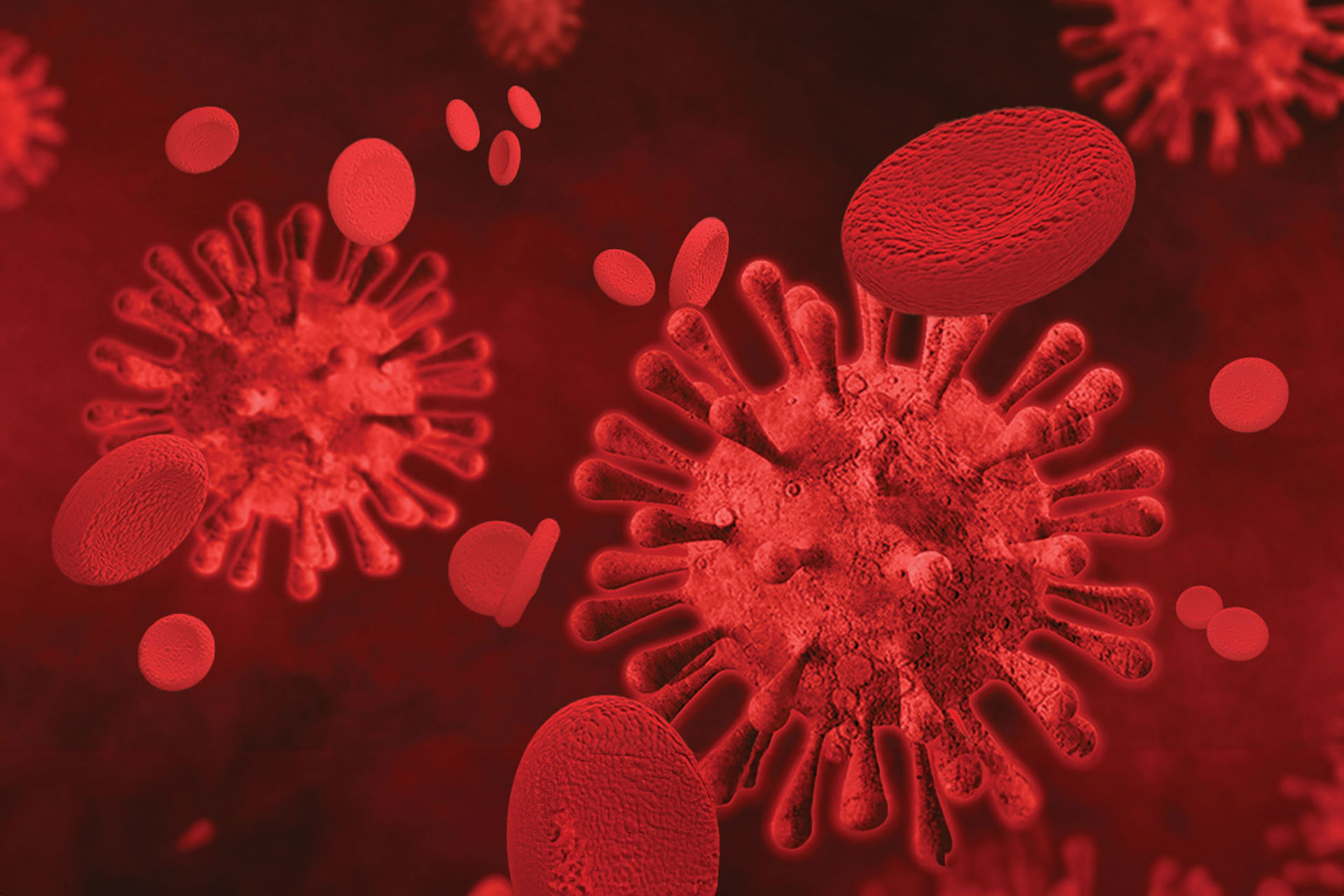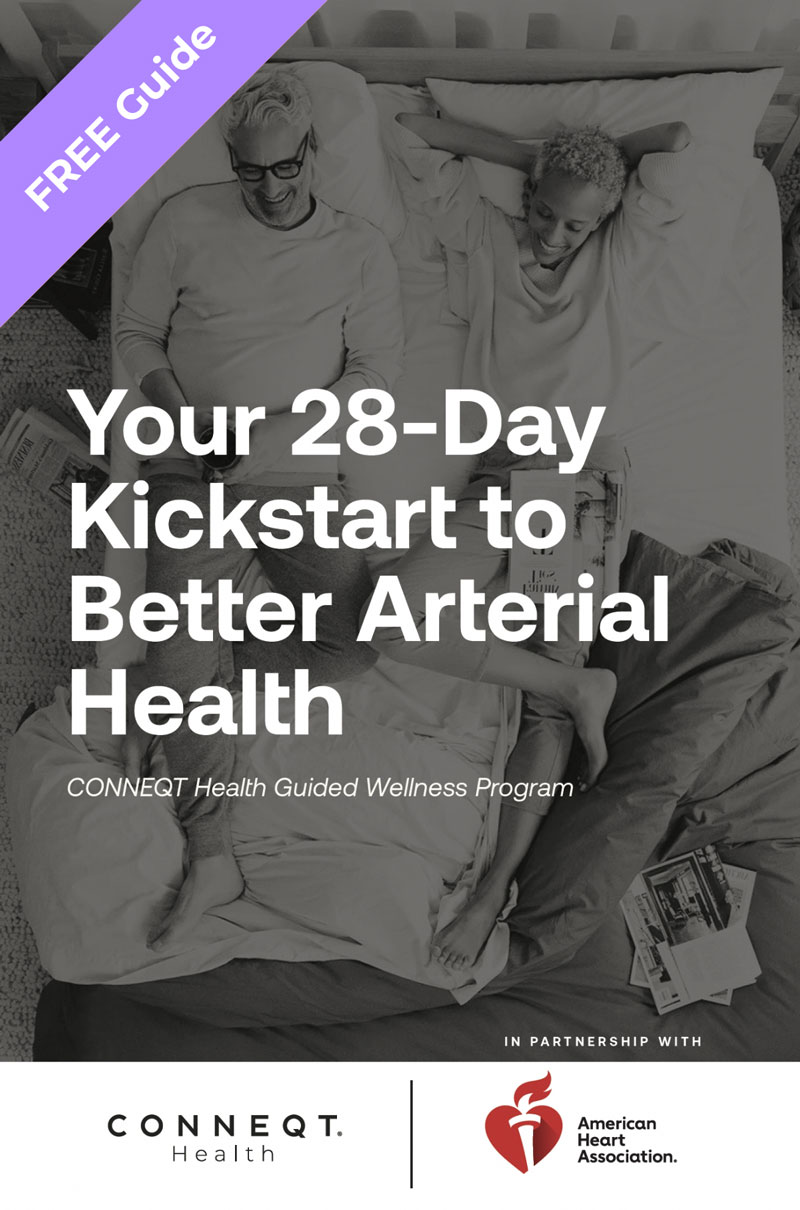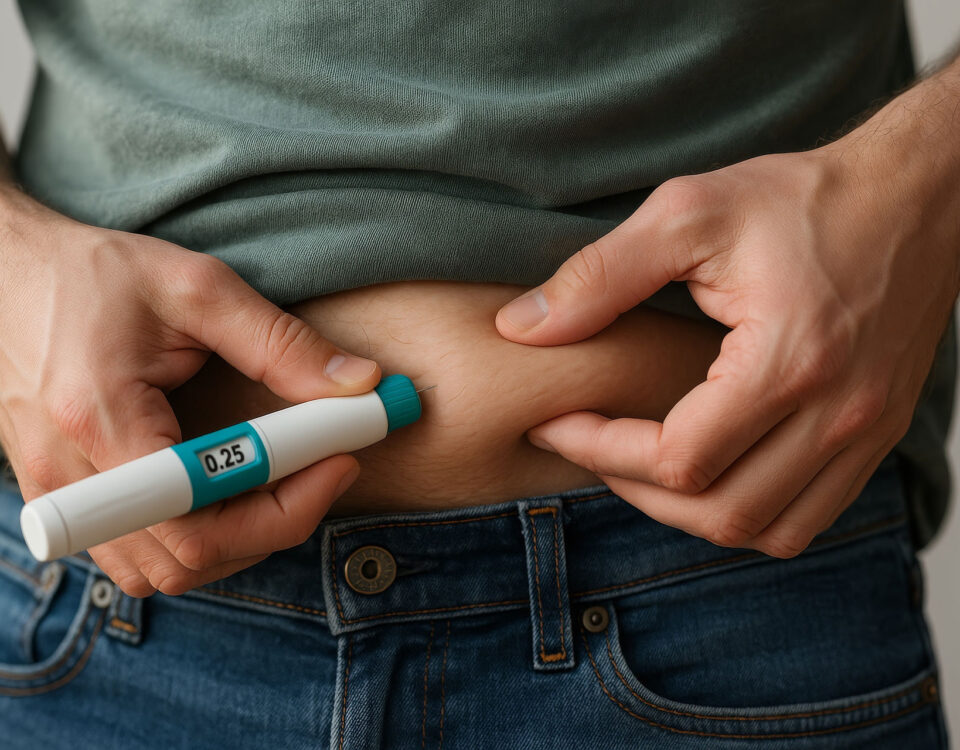Even years after the pandemic began, we are still exploring the relationship between arterial health and the risk of serious illness and death from Covid-19.
If you suspected your blood pressure went up during the pandemic, you might not be wrong. Average blood pressure readings did, in fact, increase as the coronavirus spread, according to a 2022 observational study published in the journal, Circulation.1 And the resulting hypertension epidemic could have a huge impact on the number of strokes, heart failure, and heart attacks we see in the future, the researchers note. 2

Medical Grade, Accurate, FDA-Cleared Heart Insights.
Save 20% on checkout with code VITALITY
Hypertension and Severe Covid-19 Cases
According to a 2020 study published in the European Respiratory Journal, hypertension is the most common comorbidity—the simultaneous presence of two or more diseases—seen among hospitalized patients with Covid 19. Of perhaps even greater concern, those with hypertension face a significantly higher risk of severe Covid cases. This increases their chances of hospitalization and even death.3
Analyzing data from 1590 hospitalized patients from 575 hospitals in mainland China, researchers in this study found those who suffered from severe cases were 32.7% more likely to suffer from hypertension (versus 12.6% in non-severe cases). They were also more likely to have other conditions strongly associated with vascular dysfunction, including cardiovascular diseases (33.9% versus 15.3%), cerebrovascular diseases (50.0% versus 15.3%), diabetes (34.6% versus 14.3%), chronic obstructive pulmonary disease, aka COPD (62.5% versus 15.3%), and chronic kidney diseases (38.1% versus 15.7%). 4
Comorbidities Linked to Severe Covid-19
While hypertension accounted for a little over one-third of the severe cases in this study, it’s worth noting that high blood pressure is closely linked to the development and progression of many other comorbidities. These include cardiovascular disease, cerebrovascular disease (which affects blood flow in the brain), diabetes, COPD (a condition involving constriction of the airways and difficulty breathing), and chronic kidney disease. This information comes from a 2022 report from the American Heart Association published in Circulation.5
Uncertainty Around Hypertension and Covid-19 Risk
A 2021 review in Frontiers of Physiology explored the relationship between hypertension and Covid-19. Researchers wrote, “It’s still unclear whether high blood pressure is a risk factor for acquiring Covid-19, or whether controlled blood pressure among patients with hypertension is or is not less of a risk factor.”6
How Arterial Health and Hypertension Increase Severe Covid-19 Risk
Cardiovascular health impacts Covid-19 outcomes in several ways, says Ray Townsend, M.D., the Director of Hypertension at the University of Pennsylvania School of Medicine. Individuals with high blood pressure have an increased risk of blood clots, and the coronavirus increases that risk. “Patients with Covid tend to form clots in the arterial circulation [the flow of blood in the vessels that supply the heart muscle], ” he says. “This can lead to stroke, heart attack, and peripheral vascular disease.”
Townsend says venous clots are common in Covid patients. These blockages occur in peripheral veins that supply blood to the legs and feet. This condition is known as deep vein thrombosis. “This can cause a pulmonary embolism, where a blood clot travels to, and blocks, lung circulation.”
A 2022 study published in the Journal of the American Medical Association found the risk of blood clots was higher among hospitalized Covid 19 patients than those hospitalized for influenza.7 Analyzing the outcomes of over 90,000 patients, the researchers at Perelman School of Medicine at the University of Pennsylvania found the risk of developing venous thromboembolism was 5.3% in patients diagnosed with the flu.
Among those hospitalized for Covid, the risk of deep vein thrombosis was 9.5% before vaccine availability and 10.9 percent after Covid-19 vaccines became available. The risk of arterial thromboembolism, a blood clot that travels from one part of the body to the brain (stroke) or heart (heart attack), was 14.4 percent in patients hospitalized with the flu compared with 15.8 percent in those with Covid before vaccine availability and 16.3 percent during vaccine availability.
“Although Covid-19 is primarily considered a respiratory illness, some evidence suggests the virus may also induce excessive blood clotting, or hypercoagulability, in the body,” the researchers wrote.
Covid-19 and Cardiovascular Health: Increases Complications
Not only does hypertension increase risk of serious illness from Covid infection, the disease itself can negatively affect cardiovascular health for months after the acute phase has ended, according to a 2022 study published in the journal, Nature Medicine. 8
Using medical databases from the US Department of Veterans Affairs, the researchers show that individuals who have recovered from Covid-19 are at increased risk of cerebrovascular disorders, dysrhythmias (abnormal heart rhythms), heart disease, pericarditis (swelling or irritation of the membrane around the heart), myocarditis (inflammation — often caused by a viral infection — of the middle layer of heart wall), heart failure and thromboembolic disease (the aforementioned syndrome involving a blood clot that travels from one part of the body to another, blocking arteries and predisposing one to heart attack or stroke).
These cardiovascular risks were seen even in those who avoided hospitalization. The risks increased depending on their care setting during the acute phase, whether non-hospitalized or hospitalized and admitted to intensive care. “Our results provide evidence that the risk and one-year burden of cardiovascular disease in survivors of acute Covid-19 are substantial,” the researchers wrote.
How to Reduce Our Risk of Covid Complications from Hypertension
The American Heart Association recommends that anyone with known or suspected hypertension should monitor their blood pressure (and BPV) with a home monitor. Taking blood pressure into your own hands helps measure your progress in lowering your numbers. This can help reduce your risk of dying from Covid-19.
The Pulse monitor is the first home device that’s FDA-approved to measure both central blood pressure and peripheral (brachial) blood pressure. Central blood pressure is important because it measures pressure coming out of the heart. This is different from the pressure in your arm.
Factors like arterial stiffness affect pressure at the heart. This rigidity of the arterial wall provides a comprehensive picture. It offers a nuanced view of vascular health near key organs like the heart, brain, and kidneys.9
The Cartesian Study
In May 2020, the Artery Society in Europe announced the launch of a multicenter research project to explore the medium- and long-term consequences of Covid-19 on the cardiovascular system. The researchers are using Cardiex’s SphygmoCor® technology to analyze central hemodynamic patient data. This is the same technology that will soon be available in the CONNEQT Pulse.
In the ongoing study, patients recently diagnosed with Covid-19 will be evaluated three to six months post-diagnosis. They will also be evaluated again one year after diagnosis. Evaluation includes carotid-femoral PWV and central blood pressure waveform analysis. It also covers indicators of carotid geometry and stiffness, endothelial function, 24-hour central blood pressure, and small artery remodeling. Both a five- and 10-year clinical follow-up are planned. This follow-up will determine the risk of cardiovascular events linked to central hemodynamics and arterial stiffness among survivors of coronavirus.[5]
The Importance of Remote Monitoring
The vascular implications of Covid-19 highlight the need for new diagnostic techniques. We must improve remote monitoring of cardiovascular risk factors. This includes hypertension, arterial stiffness, and arterial inflammation. The Pulse’s arterial waveform analysis, combined with a traditional brachial cuff, offers vital insights. Both clinicians and researchers gain a better understanding of their patients’ vascular health. This includes arterial stiffness, pulse wave reflections, and central aortic blood pressure. As we continue to adjust to “the new normal with Covid,” this next-generation technology represents a huge leap forward in the decentralization of critical health data.







